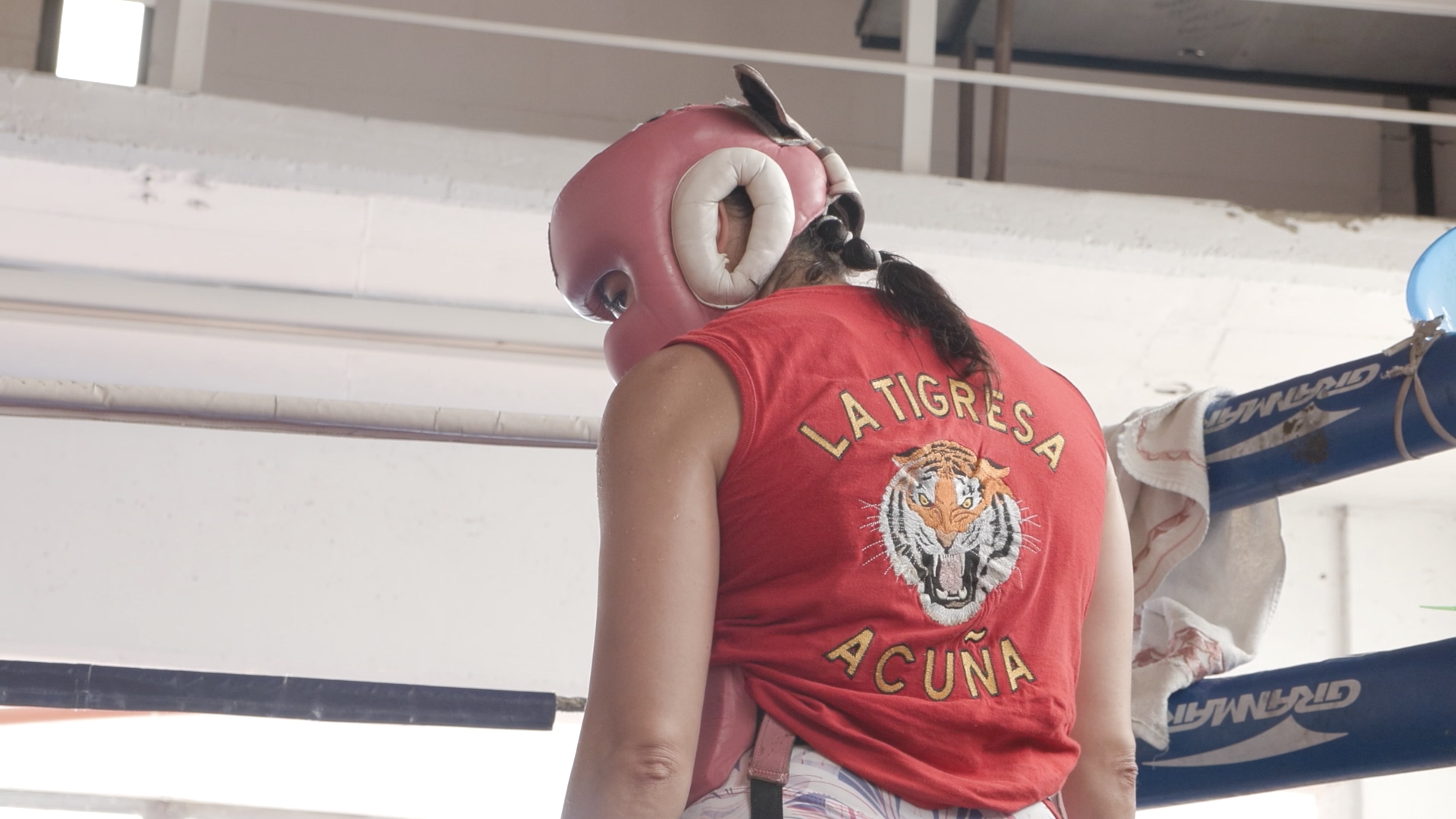By Nicole Herzog and Rose LaForest
Medill Reports
BUENOS AIRES — When boxing world champion Marcela “La Tigresa” Acuna was a child, her mother wanted her to be a tango dancer. In Argentine society, a strong sense of machismo culture and traditional gender roles have historically made it difficult to be a woman in the ring. Female boxers were often met with harsh criticism from the media and the general public.
Today, boxing is widely accepted as a professional sport and hobby for women in Argentina, and the country is home to the highest number of female boxing champions in the world. For them, boxing isn’t a means for aggression or violence — it’s an outlet to unleash their passions.
Transcript:
SOLEDAD MANRIQUE GOLDSACK: When boxing, you feel quite indescribable. It is difficult to convey the feeling. If I’m boxing with friends or colleagues, you feel a lot of respect, you feel joy, you always feel very positive emotions, you feel security, you feel tranquility, you also feel nerves and fear.
QUAGLIA: I decided, together with my partner Cecilia, to open our own school to have my own boxers and operate under our own rules and regulations.
MANRIQUE GOLDSACK: I went through a situation of family violence. I started practicing, and that allowed me to be outside of the house and feel safer, calmer and more balanced. And I started training with a teacher who helped me a lot in that sense to feel better. And I understood that the gym was a place like home for me.
QUAGLIA: I believe that it is important to maintain a female-owned boxing school to open more doors for future teachers or future boxers, so that boxing continues to grow and expand. I think that Marcela Acuña is the one who opened the doors for all women as boxers.
MARCELA ACUNA: When I was 7 or 6 years old, my mother wanted me to be a dancer, and I started doing Spanish dances. The only thing I liked about Spanish dances were the makeup, the hairstyle, the dress. But nothing else. And then, well, I started full contact (kickboxing). We couldn’t train in any gym because it wasn’t accepted. They wouldn’t allow you to even begin to train. And everyone was against it — society, the media, our colleagues. In that era, mothers wanted their daughters to do cultural things and the boys to do sports. My family was in my favor, and that was the only thing that kept me going.
RAMON CHAPARRO: She came with her brother and her father (to my gym), and I started teaching her full contact there. Well, from there a story begins. And after a few years begins a love story.
ACUNA: “La Tigresa,” my husband gave me that name when I used to do full contact because I was very aggressive in the ring, and it was like I was always going after my prey.
CHAPARRO: As I nicknamed her, she is a tigress. As a wife, she is also a tigress because we take care of each other.
ACUNA: There are many people who do not understand why, and many tell you, “Oh, you like being hit,” or “You like hitting.” And the truth is that in reality it is neither one or the other. I loved receiving criticism, especially from great journalists, but when they started attacking you without even knowing you, that was where it hurt the most.
MANRIQUE GOLDSACK: When I take boxing photographs, I try to look for gestures other than the punch. I do them during fights. Therefore, it is the moment where the greatest number of possible emotions are found together at the same time, where everything is on the line.
ACUNA: Sometimes it is very difficult to explain what motivates you to box or do contact sports, but I think if I could define it in one word, it would be passion. You put passion into it, and you have to have passion above all things with contact sports.
QUAGLIA: The kids who come now come with a different mentality.
Doing what you want, that is, being a boxer, being a teacher or having your own gym, which is beyond each person’s gender, if doing it is what you really want.
ACUNA: I had many encounters with several journalists as well. Some have passed away, some are still around, but over time I demonstrated to all of them that women’s boxing was born to stay in Argentina. One of the things I also said in 2005 was that women’s boxing could surpass men’s boxing.
Nicole Herzog and Rose LaForest are video and broadcast graduate students at Medill. You can follow Nicole on Twitter at @nicoleherzogtv. Reporting in Argentina was supported by Valeria Lopez.

